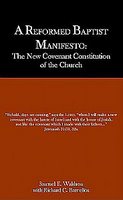A pastor friend of mine sent me an e-mail in response to Covenant Theology. This person is a highly respected pastor and a friend. I value his thoughts greatly and with his permission I will interact with his email. He gives three reasons as to why he rejects Covenant Theology, and in this post I wish to interact with position one.
1. Dispensationalism is a framework for understanding Scripture which is the natural outgrowth of a literal, grammatical, historical method of Scripture interpretation. In other words, for those of us who believe that God spoke plainly to man and not in any sort of spiritual "code", dispensationalism is the best way of understanding the Word. We realize that it is not a perfect system, but it requires no extra-biblical presuppositions.
It is true that Dispensationalism is a framework or a hermeneutical (interpretative method) method for interpreting the Bible. I want to concentrate on the statement “literal, grammatical, historical method” for interpreting Scripture. Many people down through the centuries including today have misused the Bible and twisted it to mean just about everything. As a person who takes a reformed and Baptist view of the bible, I agree with this method. Therefore if it is being said the Reformed theologians do not use this method, then that is just a red herring. I doubt that is the case, so the question will be, “what is the difference between Dispensationalists and Reformed/Covenantalists?”
Time for a little history. Many centuries ago, Christians (mainly gentile) and Jews had a major split. It is my understanding that the wedge between Judaism and Christianity was quite nasty. Over time, theologians began to lose the context of the Old Testament. A more spiritualizing of the Old Testament became prevalent for centuries. The problem however was that for every theologian, one could find an interpretation of an Old Testament text. This obviously leads to interpretations that could actually make a text mean the opposite of its original intention.
It was not until the Reformation and with leaders like John Calvin did theologians begin to go back to a method of interpretation that allowed the text to speak instead of forcing the text to say what we want it to say. In other words, they sought “original intent”.
Over time, Liberal theologians began to deny the historicity of the Bible. This led theologians to begin spiritualizing texts. This time, though it was even worse. Now instead of misinterpreting the Old Testament, now the Resurrection of Jesus is being seen as “non-literal” or "spiritual". As a reaction to liberal theology, we now have groups, who adopted a stronger literal approach (Dispensationalism) to the Bible. This stronger literal approach began taking Old Testament prophecy in ways that the New Testament may not teach.
So do Reformed theologians simply spiritualize texts? Both sides (Dispensationalism and Reformed) believe in the term “literal”. Reformed however take the term literal to mean “natural sense”. If a text is an allegory, then that is the “literal” means by which an author communicated. If an author used a parable to communicate a truth, then we need to interpret using the literary means the author used.
How does this apply to the discussion? For some Dispensationalists it may not, since they may agree with what I have said. The question then becomes how do we approach prophecy? Do we interpret the New Testament in light of our assumptions about the Old Testament, or do we interpret the Old Testament prophecies in light of what Jesus and the Apostles teach.
So in reality the questions are more difficult, such as “Is there a distinction between the Church and the ‘true Israel of God’ throughout the New Testament?” Are there two groups of Christians, Jews and Gentiles? Is the Old Covenant still in place? Does the New Covenant embrace all Christians, both Jews and Gentiles, and tear down the dividing wall? Some things to think about.
In my next post, I would like to give an example of "strict literalism" verses "natural sense".










